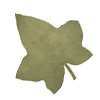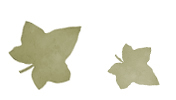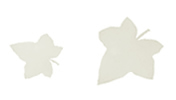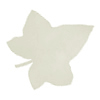|
Hair
& Scalp Treatments
by Gillie Whitewolf
Hair
comes in many different colours, thickness, strengths,
and styles... with a few unwanted problems every
now and then... From dandruff to headlice, greasy
hair to frizzy hair, falling hair to greying hair
there's always something natural to get your scalp
and locks back to their natural beauty and to help
keep them healthy!
Diet
and Lifestyle
Diet plays an important factor in the health of
your hair. For thick, healthy hair make sure your
diet includes plenty of fresh foods, whole grains, protein, silicon rich foods such as oats, garlic,
seaweeds, radishes, most organically grown veg and
fruit; and sulphur rich foods such as watercress,
cabbage, broccoli, radishes, onions, eggs and nasturtiums
[the leaves and flowers can be eaten raw in salads
- they have a pleasant peppery flavour]. Sesame
seeds [rich in iron, zinc and vitamin E] are a nourishing
food for the scalp. You're nails will also benefit
from these foods. Don't forget to include plenty
of water too.
Nettles are great food
for maintaining healthy shiny hair, they're packed
full of nutrients and minerals. The young spring
tops can be cooked in much the same way as spinach
[they don't taste like spinach] and eaten as a vegetable
side-dish, or added to soups and lasagnes. Save
the water used to cook the Nettles in and use as
a hair rinse. If you only have dried Nettles make
up a strong infusion and use this as a hair rinse,
or make up an infused hair oil. Nettle tea helps
your body throw off toxins and cleanses the entire
system - blend with Lemon Balm for a pleasant tasting
cuppa.
Our scalps need to be supplied with blood, oxygen
and nutrients in order for our hair to be in tip-top
condition. How healthy we are inside really does
matter to the outside - as those odd 'bad hair days'
can show us! It's not just the physical health which
matters, our emotional health is just as important.
There are many lifestyle factors which affect the
condition of our hair. Stress can play havoc with
an otherwise lustrous head of hair, as can pollution;
lack of natural light; chemical shampoos and styling
products; hair-driers and cheap brushes; washing
your hair too frequently... the list could go on,
but that would make for a pretty boring article
- so instead, here are a few lifestyle tips you
could try adopting to keep your hair healthy :
• Washing your hair too frequently strips the
hair of its natural oils, whch prompts your scalp
to produce more oil, which results in your hair
getting greasy quicker...so you wash your hair,
which strips the hair of its natural oils and you're
in a vicious little cycle. I wash my hair only once
or twice a week at the most [which is still proably
more often than I really need to]. If you're used
to washing your hair everyday, you may need to put
up with a few greasy hair days until your body gets
back to its natural oil producing rhythm, but it's
worth the wait [a scarf or bandana is a useful item
to have when adjusting your hair washing rota].
• Using shampoos and styling products chock
full of chemicals does no good either - try to use
more natural beauty products, and less styling products.
There are plenty of natural remedies you can be
preparing in your own kitchen, from herb infused
oils or vinegars to simple water infusions [just
like making a cup of tea!].
• The dreaded hair-drier has long been known
to strip the hair of natural oils and the heat can
over-dry your hair, leaving it lifeless and weak,
brittle or frizzy. I don't remember the last time
I used a hair-drier. I pat the worst of the damp
off my hair with a towel and leave to air-dry [and
no - I don't have short hair, so yes, I do quite
often get a slightly damp back - but my hair looks
and feels great]. Using cool water for the final
rinse will help to smooth down the hair shafts.
If you have dry to normal hair cool water is best
for the final rinse, for greasy hair try warm water,
it will help dry out some of the excess oil.
• If you enjoy colouring your hair, why not
try natural hair dyes, such
as Henna.
• Give yourself a head massage - or better
still get you partner or friend to. Stimulating
the scalp will bring more blood to the follicles
and encourage new hair growth. It will also help
relax you!
•
Brushing your hair stimulates the scalp, helps to
dislodge dandruff and disributes natural oils through
the hair. Try to use only natural bristle brushes,
or combs, as other brushes can be too stiff and
will break your hair, resulting in split ends. Split
ends don't magically repair themselves, but you
can help their appearance and prevent the hair from
splitting further. Applying a little Jojoba oil
to the ends of your hair will help improve the look
of split ends, or treat yourself to a Henna treatment,
the Henna will help smoothe the split ends together.
For tangled hair always start combing out the knots
from the ends of the hair, not the scalp, and gradually
move up the hair - avoid ripping through the full
length of the hair, you will only make the tangle
worse and will damage the hair. A little oil applied
to the comb will also help.
•
And a little Moonlore - If you want your hair to grow quicker trim it
on a New Moon or during the first quarter. If you
don't want your hair to grow quickly trim it during
the waning moon.
Dandruff
An annoying problem which can usually be dealt with
fairly swiftly. The most effective herbs I tend
to use to combat dandruff are Sage and Rosemary. The fresh
or dried leaves of either plant can be infused in
water, as though making a strong cup of tea, and
used as a post-shampoo hair rinse; or prepare a
Sage infused oil, warm the oil gently before use
and then coat your hear and scalp and leave in for
half an hour or so before shampooing out; or infuse
the leaves in Cider-Vinegar for a few weeks and
use as a scalp friction. Cider-Vinegar is itself
an old folk remedy for dandruff, and also imparts
a healthy shine to your hair. A few drops of Rosemary
essential oil can be added to a carrier oil such
as Olive oil and used to massage into the scalp
before bedtime - leave in overnight and rinse with
lemon juice in the morning.
Cloves are wonderfully
antiseptic and antibacterial. Try simmering several
bruised/crushed cloves in some water for 15 minutes
or so, strain and use the water as a hair rinse.
The cloves can also be infused in a vegetable oil,
or if you make your own home-made shampoo-bars try
including some crushed cloves. Cloves also stimulate
the scalp and will leave it feeling fresh, clean
and awake. Ginger is another
useful spice for treating dandruff, and falling
hair - try freshly pressed ginger root juice mixed
with Sesame oil and apply all over the scalp. Use
a towel to wrap your hair up and keep the warmth
in and leave for as long as desired before shampooing
out.
Tea-Tree is a superb
anti-fungal and anti-bacterial, and is an excellent
oil to include in your hair treatments, especially
helpful for treating itchy, scaly scalps. If you
have some Tea-Tree essential oil to hand try adding
a few drops to a mild shampoo, or add to the final
rinse water.
Lavender is one of those
oils every first-aid kit should have. An excellent
oil for a range of skin problems - dandruff being
one of them, although it is best suited to tackling
dry, flaky dandruff as opposed to the oily variety
of dandruff. If your dandruff is a result of stress
I would suggest including lavender in your hair-care,
it will help to relax you, and will give your immune
system a boost. Add a few drops of the essential
oil to a mild shampoo; make an infusion of the dried
or fresh flowers and use as a hair rinse; or infuse
a carrier oil and use as an oil treatment as described
above.
The allantoin containing Comfrey and Plantain leaves can both be used as a treatment
for dandruff. Make up a strong infusion of either
herb and use as a hair rinse.
Headlice
Lavender and Tea-Tree essential oils are extremely effective at tackling
the problem of headlice. Add a blend of both of
these oils to a carrier oil and coat the hair and
scalp liberally. Any lice which aren't suffocated
by the oil will make their way to the edge of the
hairline where they can be picked off easily. Any
left in the hair can be combed out easily with a
nit-comb.
Neem is another traditional oil for treating lice,
you will probably be able to purchase a natural
lice hair treatment containing Neem from your local
healthfood shop, or if you have the oil it can be
used in the same way as the Lavender or Tea-Tree
[above]. Eucalyptus, Rosemary and Geranium essential oils may also help.
Thin
or Falling Hair
Parsley is a great
herb for thickening up the hair. To make up a parsely
cold-infused hair oil place some parsely in a glass
jar and add enough carrier oil so that the herb
is completely covered. Leave the jar in a warm sunny
spot for a week or two. Strain the oil through a
piece of clean natural material [muslin or cotton
is great]. If you use fresh parsley check the appearance
of your oil, if has separated out into two layers
pour the top layer off and throw away the bottom
layer, unless you are to be using your oil immediately
- if left, the oil will spoil very quickly.
Nasturtiums, rich in sulphur, have a long history
as a remedy for falling hair. Simmer up a handful
or two of the leaves, flowers and stems for about
15 mins, strain, cool and use as a friction and/or
final rinse. To make a longer lasting friction oil
macerate the Nasturtiums in Vodka for at least a
fortnight. Strain and bottle. You could add a few
drops of your favourite essential oil if you like
- Grapefruit has a tonic effect on the scalp, as
does Rosemary.
Rosemary is an excellent
hair tonic and has long been used as a folk remedy
for falling hair. Infuse the fresh or dried plant
in oil, cider vinegar or use as a herbal infusion
for a hair rinse, or add a few drops of Rosemary
essential oil to a mild shampoo.
Dry
and Frizzy Hair
I love finding enough time to treat myself to
a hot hair oil treatment from time to time, and
you don't have to wait until your hair is crying
out for some moisture, taking time out to pamper
yourself can help prevent your hair reaching the
frizz stage. For my favourite hot oil treatment
I use my own blend [which I've called Sagemary Moon]
which includes Rosemary and Sage infused Almond
oil blended with Jojoba oil and a few essential
oils. I find Sage particularly conditioning, and
Jojoba is an excellent oil for calming frizzy hair.
Warm Olive or Coconut oil can be massaged in to
the scalp and smoothed through the hair before bedtime
and wrapped with a warm towel - leave the oil in
overnight. You could add a little Wheatgerm oil
for extra nourishment, or a few drops of Lavender
essential oil. Oil treatments can be a little stubborn
to wash out - try adding Lemon juice to the rinse.
To make a hair friction treatment for dry hair add
several drops of Rosemary or Lavender essential
oil to a small bottle of Vodka [or Gin]. Shake well
and use at least an hour or two before you wash
and shampoo your hair.
An old remedy I remember from my school days if
the use of beaten Egg Yolks [good source of sulphur
and protein] as a hair mask. One note of warning
- only use COLD water when you rinse it out, otherwise
you'll end up with a scrambled-egg-head! I have
seen recipes which include the whole egg whisked
up, experiment and see what works best for you.
If you suffer from brittle hair you could try the
[slightly smelly] old folk remedy of rubbing raw
onion in to your scalp. Alternatively just include
plenty of onions in your diet - they're a rich source
of sulphur!
Greasy
Hair
Jojoba is a useful carrier oil to include in your
oil blends - research has shown it has an abillity
to inhibit excess activity of the sebaceous glands.
Try adding a few drops of Bergamot, Geranium,
or Grapefruit essential
oils to some Jojoba oil, warm the oil and massage
in to the scalp and smooth through hair. Leave in
for as long as desired and shampoo out.
Lemon juice has so many
applications for both health and beauty - it's excellent
at tackling greasy hair, and will impart a beautiful
shine too. Comb lemon juice through your hair, or
make up a solution of lemon juice and cider vinegar
and use as a post shampoo treatment, massaging it
into your scalp. Leave in for 5 - 10 minutes before
rinsing out.
Natural
Colouring
With all the dangers associated with chemical
hair dyes [especially of the black variety] why
not stick with natural colouring plants such as
Henna - not only will you be able to acheive a natural
multi-shaded colour, but you'll receive the benefits
of the plant - conditioning, thickening, scalp stimulating
etc... depending on the herb in question.
Blondes and Fair Hair : The pretty Chamomile
flower comes to the aide of all fair headed souls
who want to add a little sunshine and highlights
to their hair.
Saffron will impart a rich golden tint [but is expensive
to buy], whilst Calendula petals are good for strawberry--blondes.
Mullein will give blonde hair a rich golden shine,
and will also strengthen hair.
Lemon juice is another friend used for lightening
hair - and not only fair hair, it can be combed
through all colours to help obtain highlights.
Red Heads : Calendula will help bring out
highlights, or go all the way and reach for the
Henna. Henna will help impart shades from pale marmalades
and coppers to rich burnt sunsets and vibrant orange
reds. It can also be mixed with other herbs to vary
the colouring [see below].
Brown Hair : Sage can be used to darken hair
[and will help condition the hair too] as can Rosemary.
Walnut leaves are an old Italian remedy for keeping
hair rich dark and glossy - simmer up a few handfuls
of Walnut leaves, strain and use as a hair rinse.
Another dye comes from oil obtained by distillation
of the nut, which is jet black and has been used
for centuries to colour hair and add gloss. The
green outer husks of Walnuts can be boiled in water
and strained after about 15 - 20 minutes. Use the
liquid as a hair rinse to darken hair.
Black Hair : Eastern women have for centuries
used the dried leaves of the Indigo Plant to colour
their hair a blue-black. It can be mixed with an
equal amount of Henna and made into a paste with
hot water. Massage well into the hair, particularly
at the roots and leave in for about an hour. Rinse
off with lukewarm water.
Oak Galls feature in folk recipes as a black hair
dye - a large handful of the freshly gathered galls
can be infused in 1 pint of boiling water for about
10 minutes, before being strained and applied as
a hair rinse, working it well into the hair and
roots. [Not a recipe I personally fancy trying...]
Grey Hair : Rosemary and Sage can both be
used to darken hair and impart a brown tint. If
you fancy turning grey hairs into vibrant copper
/ fire strands pluck up the courage to henna your
hair - but be ready for the colour to be bright!!
How to make a Herbal Colouring Hair Rinse : Add a few handfuls of dried or fresh herb to a
pan of water and bring to the boil, simmer and watch
the water take on the herb dye. The stronger the
colour of the infusion the more effect it will have
on your hair - but don't expect bottle-dye drastic
changes, you'll need to build up the colour with
repeat applications [over time, not all on the same
day!].
Using Henna : Add dried / powdered Henna
to just boiled water - plus any additional herbs
you may wish to affect the final colour. Mix in
well - the amount of water you use will determine
the thickness of the solution - a smooth flowing
paste is a good consitency. Applying Henna can be
a messy job, it's better if you can get someone
to help you. Protect the edge of your hairline with
vaseline to avoid staining, and wear gloves or you're
hands will be stained for days! In fact, cover surfaces
and clothes, it doesn't take long for the Henna
to dye things. Apply the Henna whilst still warm
and ensure that the roots are covered well and the
Henna worked through the hair. Leave on for as long
as you like - I usually try at least a few hours
if not overnight [protect the bedding with towels!].
Wrapping your hair up in clingfilm will help redden
the final colour, whereas leaving the hair open
to the air will result in a browner shade.
Do not use Henna on hair which has recently been
permed or treated with metallic dyes. If you don't
get the shade you want, do not try to bleach the
Henna out - the bleach will only open up the hair
shafts and force the Henna deeper into the cortex.
Use glass or cermaic bowls when preparing your hair
treatments - metal implements can react with the
natural chemicals in Henna.
Additions for varying the
colour of a Henna treatment : For golden or
copper highlights add Cider Vinegar or Lemon Juice;
For interesting red shades substitue Beetroot juice
or cranberry juice for the water - various berries
can be used to create red and plum shades - black
grape juice imparts a slightly blue tint; To impart
an auburn tint add Tea or Red Wine, Tea will also
help set the Henna colour - use a strong Tea infusion
in place of the water when mixing up the Henna paste.
To deepen the browns use strong Coffee in place
of the water. The Indigo Plant will yield a blue-black
dye, try varying the amount of crushed Indigo Plant
leaves and powdered Henna to get the colour desired,
The
herbal remedies mentioned in this article are not
intended to replace professional advice. Any medication
you are on should also be taken into consideration
- always check with your healthcare professional
if you are on prescription drugs before taking herbal
remedies. |
|












